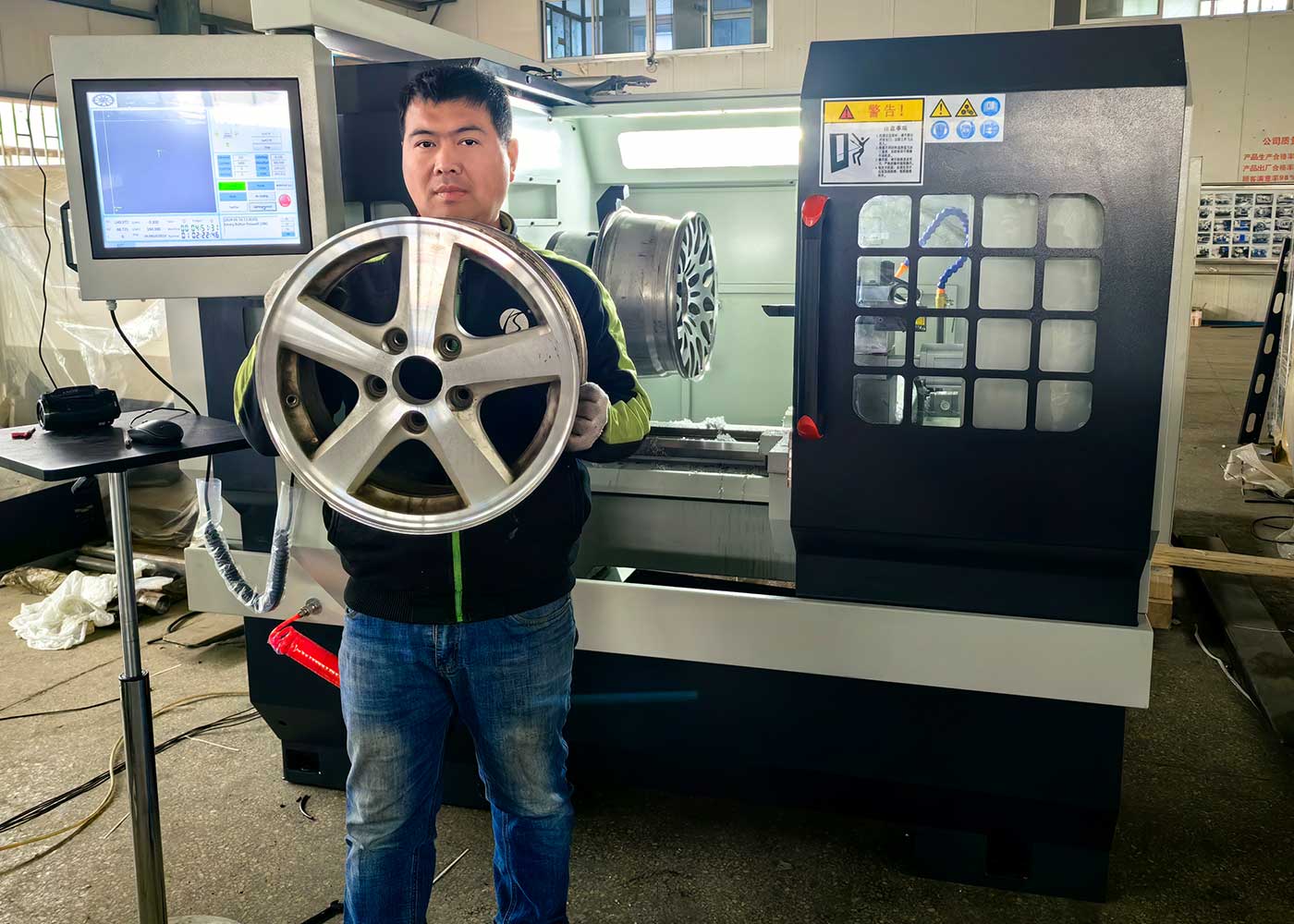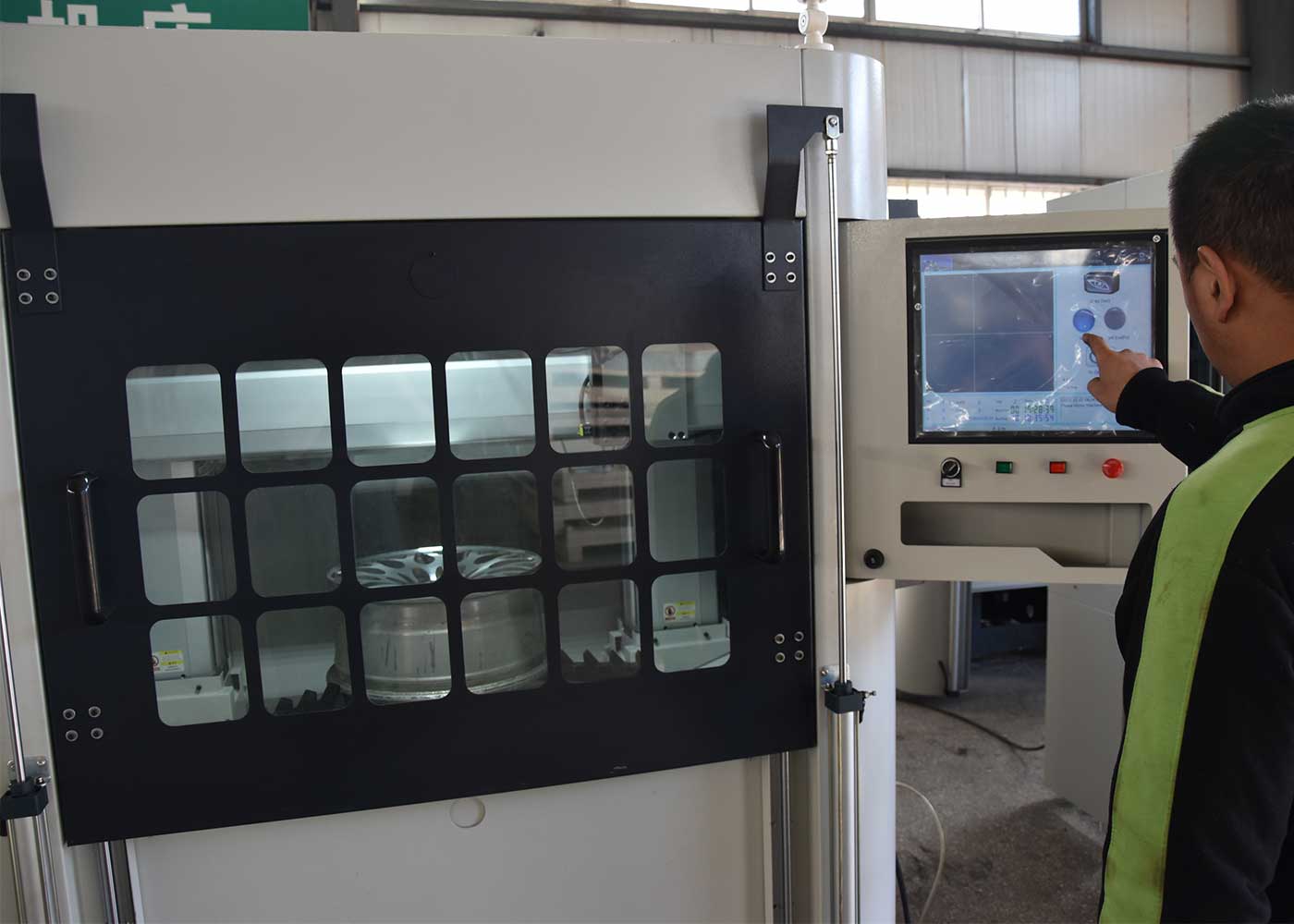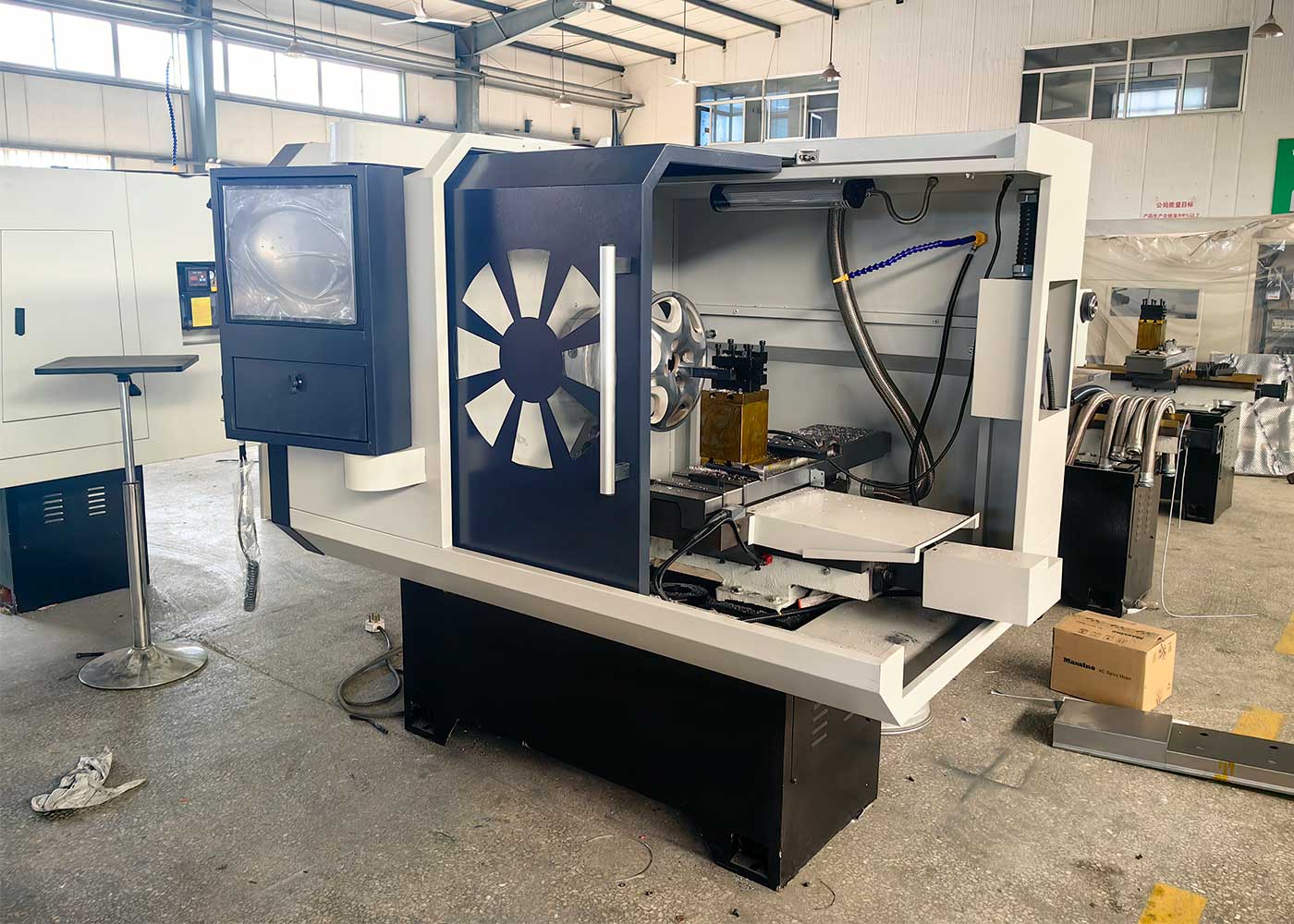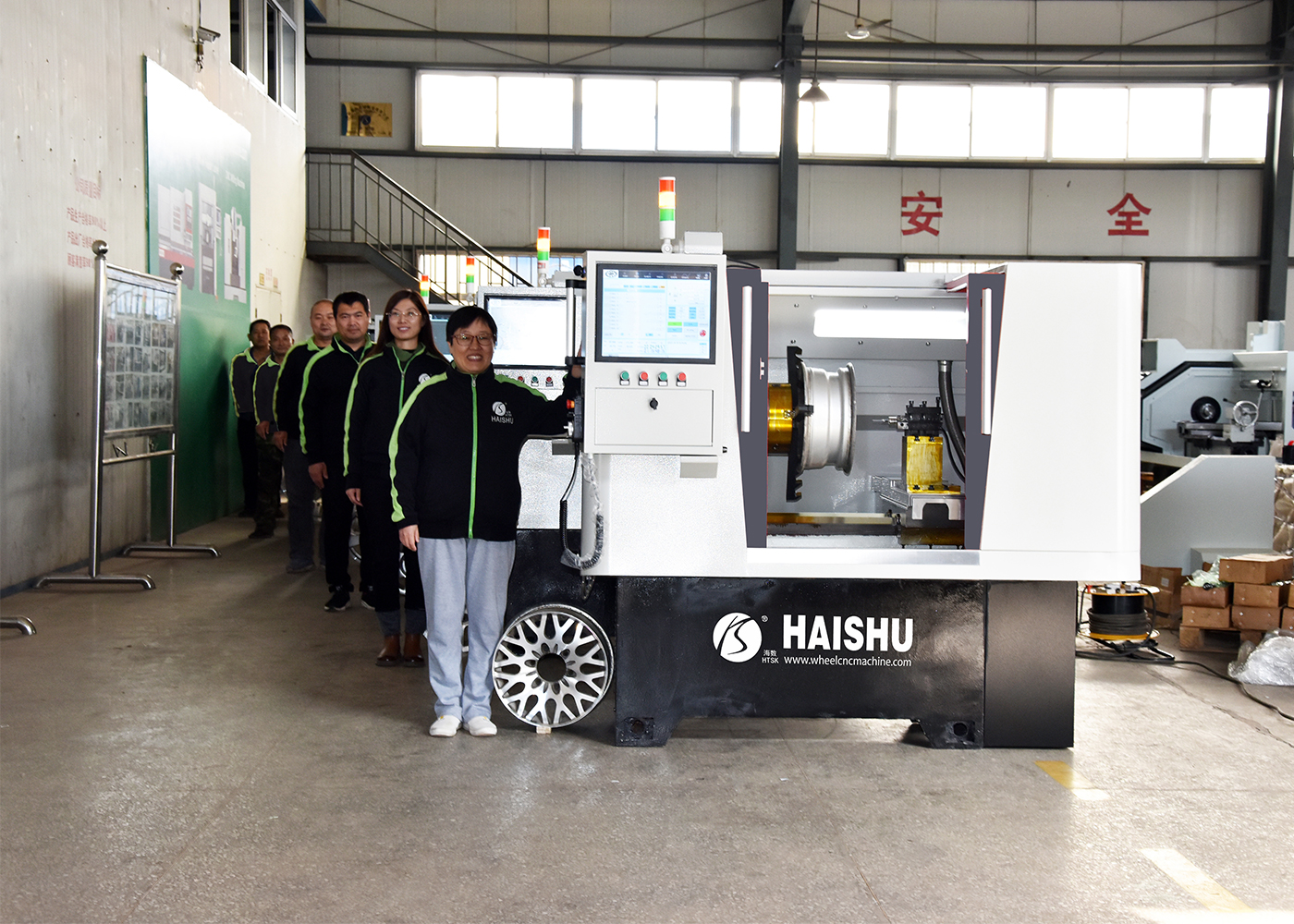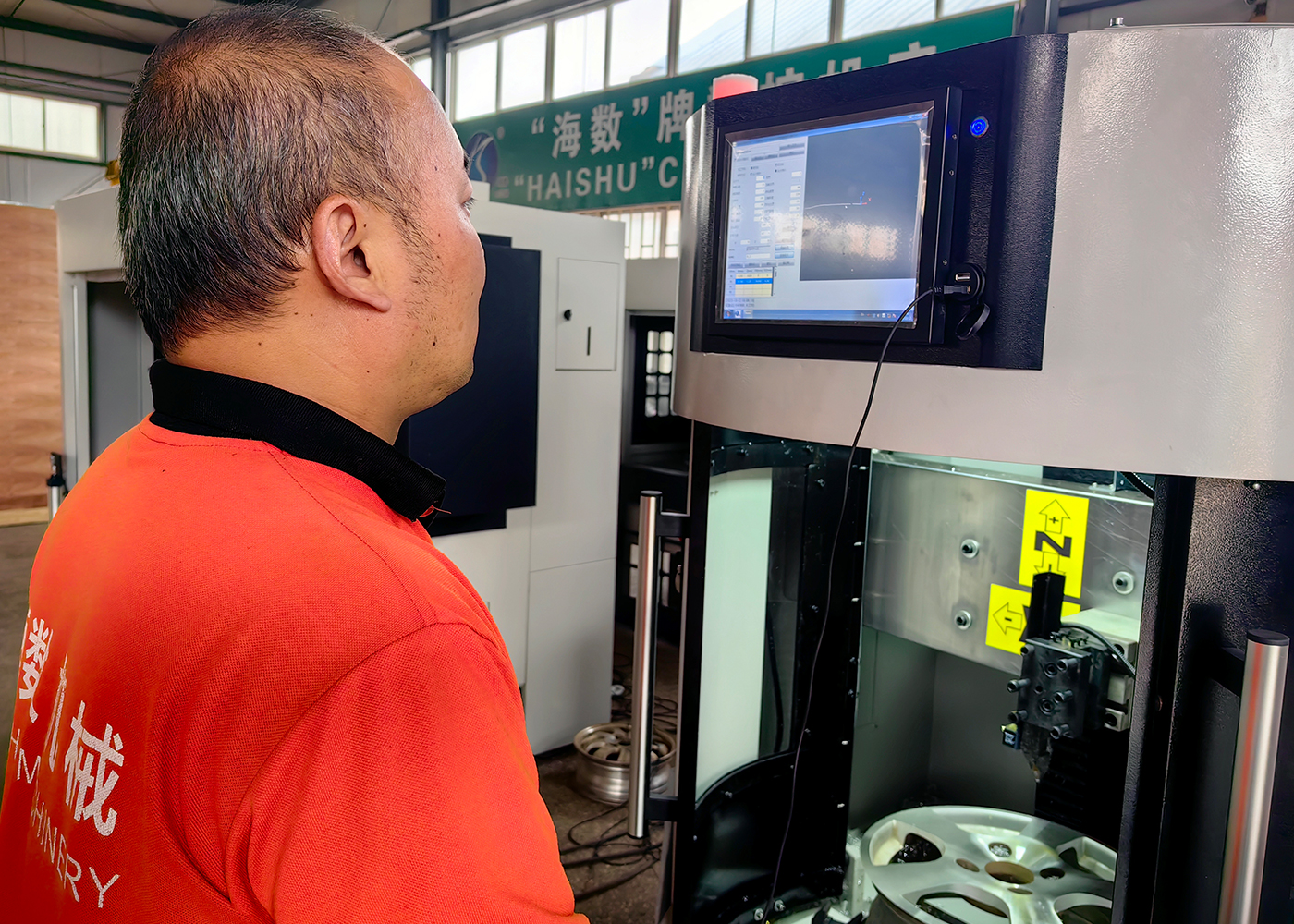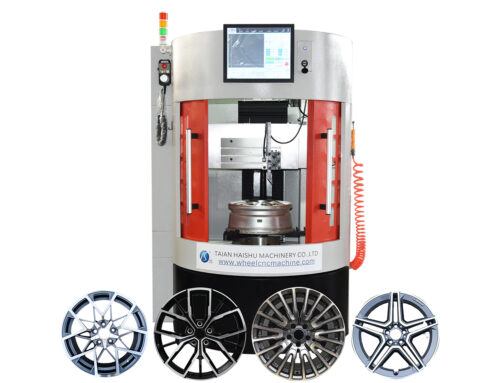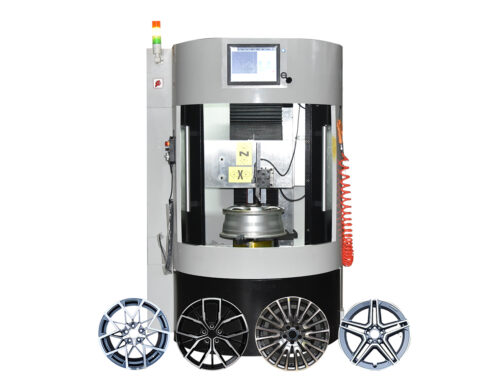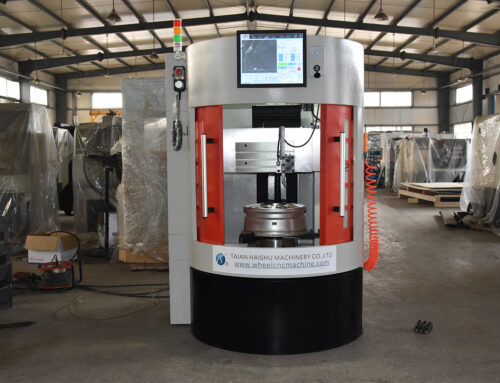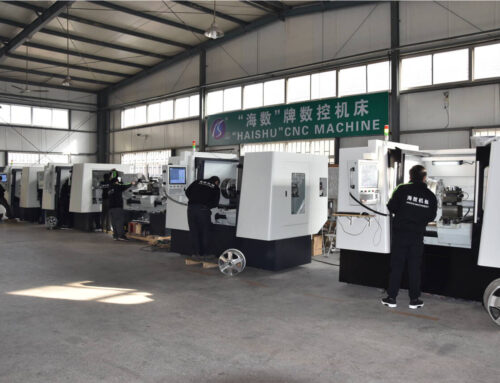Introduction
As the automotive industry evolves, the technology for refurbishing vehicle wheels must also advance. A wheel repair lathe is at the heart of this process, making the choice of its operating system crucial for businesses that specialize in wheel restoration. This article will explore the considerations between adopting a standard CNC system and a specialized CNC system for wheel repair tasks.
The Role of CNC in Wheel Repair Lathe Operations
A wheel repair lathe, especially a vertical wheel repair lathe, is designed to efficiently restore damaged wheels to their original condition. The operating system of such a machine determines the precision and efficiency of the repair process. The wheel repair lathe needs to have an operating system that can handle complex profiles and deliver consistent results.
Standard CNC Systems vs. Specialized CNC Systems
When it comes to wheel repair machines, choosing the right CNC system can make a significant difference in operation and end results.
Standard CNC Systems
Standard CNC systems are versatile and can be used in various machining tasks, including wheel repairs. However, when used in a wheel repair machine, they may require more skilled operators and longer setup times, as they are not tailored specifically for wheel refurbishing tasks.
Specialized CNC Systems
For a wheel CNC machine, a specialized CNC system is often a better fit. These systems are designed with wheel repair in mind, offering more automated features, such as pre-programmed repair profiles, which can streamline the repair process of an alloy wheel repair lathe.
Technical Aspects and User-Friendly Operation
Ease of use is paramount when operating a wheel repair lathe. Specialized CNC systems provide a user-friendly interface and more straightforward operation, which is crucial for shops that handle a high volume of wheel repairs on a daily basis.
Cost Implications
While the initial investment in a specialized CNC system for an alloy wheel repair lathe might be higher, the long-term savings in operator training and reduced repair times can be advantageous. It’s important to consider not just the upfront cost but also the operational efficiency and potential savings over time.
Compatibility and Future-Proofing
A significant advantage of specialized CNC systems for a wheel repair lathe is their ability to adapt to the latest wheel designs. As new wheel styles emerge, having a system that can be easily upgraded or modified to accommodate these changes is essential.
Conclusion
Whether you opt for a standard or specialized CNC system for your wheel repair lathe, the decision should be based on your specific business needs and the types of wheels you typically service. A vertical wheel repair lathe equipped with the correct CNC system will not only ensure high-quality repairs but also improve turnaround times and customer satisfaction. Careful consideration of the points outlined above will guide you to the best choice for your wheel repair machine and help solidify your position in the competitive wheel repair market.
